I am reading H.264 bitstream as Hex file in c++. I want to insert some string whenever some certain condition met.
Like in the attached image if hex value of 00 00 00 01 occurs anywhere in the file i want to add some string like ABC before 00 00 00 01 in the file and save this as a new file. Write now my approach is to read h.264 file as hex. convert it into string and make a string comparison. if there is a way i can do a straight hex comparison? Here is my current code
#include "stdafx.h"
#include <iostream>
#include <fstream>
#include <sstream>
#include <string>
#include <iomanip>
using namespace std;
int _tmain(int argc, _TCHAR* argv[])
{
unsigned char x;
string s1,s2,s3;
s2="Mushahid Hussain";
s3="0000000141";
std::ifstream input("d:\\Jm\\videos\\trying2.264", std::ios::binary);
input >> std::noskipws;
while (input >> x) {
long constant = 0x0000000168;
std::ostringstream buffer;
buffer << std::hex << std::setw(2) << std::setfill('0')
<< (int)x;
s1=buffer.str();
if (s1.find(s1) != std::string::npos) {
cout<<"hello";
s1+=s2;
}
std::ofstream outfile;
outfile.open("d:\\Jm\\bin\\trying5.264", std::ios_base::app);
outfile << s1;
}
return 0;
}
Edit 1
As answered by Tommylee2k i am able to append string . But problem is that at the end of file hex CD value is appending like shown in the attached image.
